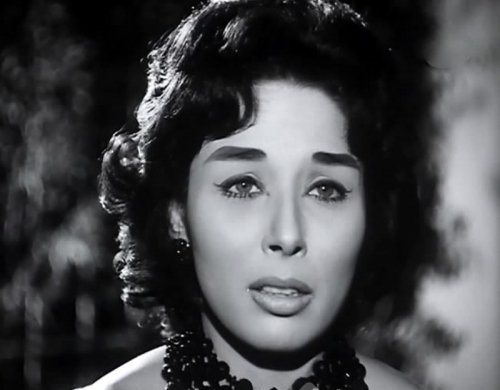
Iconic actress Lobna Abdel Aziz is one of Egypt’s most legendary stars and one who successfully established an acting career at a time when acting was seen as taboo and in a society that stifled women with traditional roles and expectations.
In her tastefully decorated house in Zamalek, where beautiful photographs in colorful frames pop against the walls, she told me her story.
Born in 1935, Lobna always wanted to act. At the age of three years old, she used to recite poetry on stage at her school, St. Mary’s Catholic School For Girls.
Brought up by her father, a dramatist, playwright, critic and journalist raised in England, she was safe to think and learn freely.
“My father was a different kind of man, he was my inspiration and he was the person who encouraged me to be my own woman,” said Lobna. “He put in me a fighting spirit and a very dramatic, creative soul and I was not going to give this up. It was my father’s gift to me,” she added.
As a child, Lobna was not allowed to ride a bicycle – because supposedly only boys could ride bikes, drive cars and go out on their own. Lobna tenaciously fought against these restrictions, which provoked the ire of her family, who did not like the way her father brought up his daughters.
At the age of 15, Lobna was admitted to the American University in Cairo at a time when most girls were not even granted the right to education. Her family, especially her older uncle, was against her studying at AUC because most other girls went to Egyptian universities or were married.
At the same time, Lobna started her career on the radio under the name of “Little Lolo”. She was part of the “Children’s Corner”, a program where children were invited by the hosts to come and play and talk about their hobbies and interests.
“I became Little Lolo for a while and then a few years later the British left the country and there was no one to run the Children’s Corner. I said, ‘I can do it!’ By that time I was only 15, but I was determined that I could do it – and I did,” Lobna recalls.
Lobna participated in almost all of the plays at university, directed mostly by professors. All of them wanted Lobna in their productions and loved her performances.
Some industry directors and producers also attended those plays and they would go backstage to try to convince Lobna to work in the cinema. Her reserved reaction to these offers revealed much about the societal restrictions of the period but nothing about the actress she was to become.
“I would answer them saying, ‘Oh no! Thank you so much but this is impossible!’ This is how a girl at that time thought. I never thought I could have a career in acting as much as I loved it. I loved it more than anything,“explained Lobna.
Later, when Lobna was close to graduating, one of her professors suggested she should apply for post-graduate studies abroad. At the age of 19, being the youngest and only girl who applied, she was accepted. She was extremely happy because if she couldn’t practice acting, at least she would be able to study. She left Egypt and studied theater in the U.S. at the University of California, Los Angeles.
“I wanted to work, I wanted to go to AUC, I wanted to act on stage.. and I was going to the United States on a scholarship and I was only 19 at a very backward society. Being an actress was a taboo, acting was looked down upon and any other form of visual arts, of course. I decided to study and maybe afterwards I could teach and pursue my radio career,” Lobna recalled.
Lobna’s experience at UCLA was magical. She was exposed to Hollywood, directors and actors taught her classes, she was cast in many plays and she completed her Master’s.
Afterwards, she came back to Egypt for her sister’s wedding. Her father helped her land a job as a correspondent at Al-Ahram newspaper, where she was asked to do a comparison between Egyptian and American studios. But Lobna had never seen Egyptian studios before, so a colleague took her. That’s when her Egyptian film career began.
Lobna quickly stole the spotlight from many actresses in the scene for being the young, courageous girl who was already known from the radio. She did a series of successful movies, including El Wesada El Khaleya, Ana Horra, Haza Howa El Hobb, Gharam El Asyad, Bahia, La Tazkoreeni, Arous El Neil and El Eib.
Through her movies, Lobna helped transform how the typical Egyptian female was portrayed in cinema, from the poor girl who was always oppressed, losing her family and needing to find love to be happy, to a strong character who stood up for herself and wanted to have choices.
Nowadays, women’s issues are still generally dismissed as trivial in the face of the country’s political strife and economic troubles. Which is why “Today, women should fight as twice as hard,” Lobna said. “I hope we do not accept locking women back behind doors.”
WE SAID THIS: Check out The Top 10 Arab Films of All Time, with five classics of Egyptian cinema on the list.


